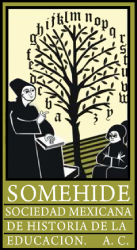La iglesia católica y la resistencia al cambio en la educación campesina, (1930-1960)
DOI:
https://doi.org/10.29351/mcyu.v2i2.509Palavras-chave:
Educación, resistencia, valores tradicionales, inmovilidad social, adecuación al cambioResumo
El artículo se plantea el papel que desempeñó la Iglesia frente a los cambios del Estado posrevolucionario, mismo que la dejó fuera de la participación educativa, sobre todo en lo referente a la educación para obreros y campesinos. Se presenta la labor que desempeñó, obligadamente y como una connotación de resistencia pasiva, ante la perspectiva de una posible desaparición de su influencia educativa y religiosa en el campo mexicano. En este artículo se resalta, fundamentalmente la intención deliberada de la Iglesia por mantener el status quo frente a los embates que significaban la secularización de leyes y costumbres, la hegemonía del Estado en la educación, la proliferación de los medios de comunicación y otros fantasmas que se cernían sobre su cabeza, como la expansión del comunismo internacional o del protestantismo norteamericano. Las medidas tomadas por la Iglesia consistieron en la “modernización” de sus métodos a través de las escuelas especializadas para campesinos, de manera que éstos se educaran en las primeras letras, tuvieran una habilitación especializada en cuanto a sus labores en el campo y, sobre todo, siguieran recibiendo los preceptos de la educación y la moral católicas en sus lugares de origen, para evitar con ello su movilización social.
Downloads
Publicado
Como Citar
Edição
Seção
Licença
Copyright (c) 2006 Valentina Torres Septién

Este trabalho está licenciado sob uma licença Creative Commons Attribution-NonCommercial 4.0 International License.







